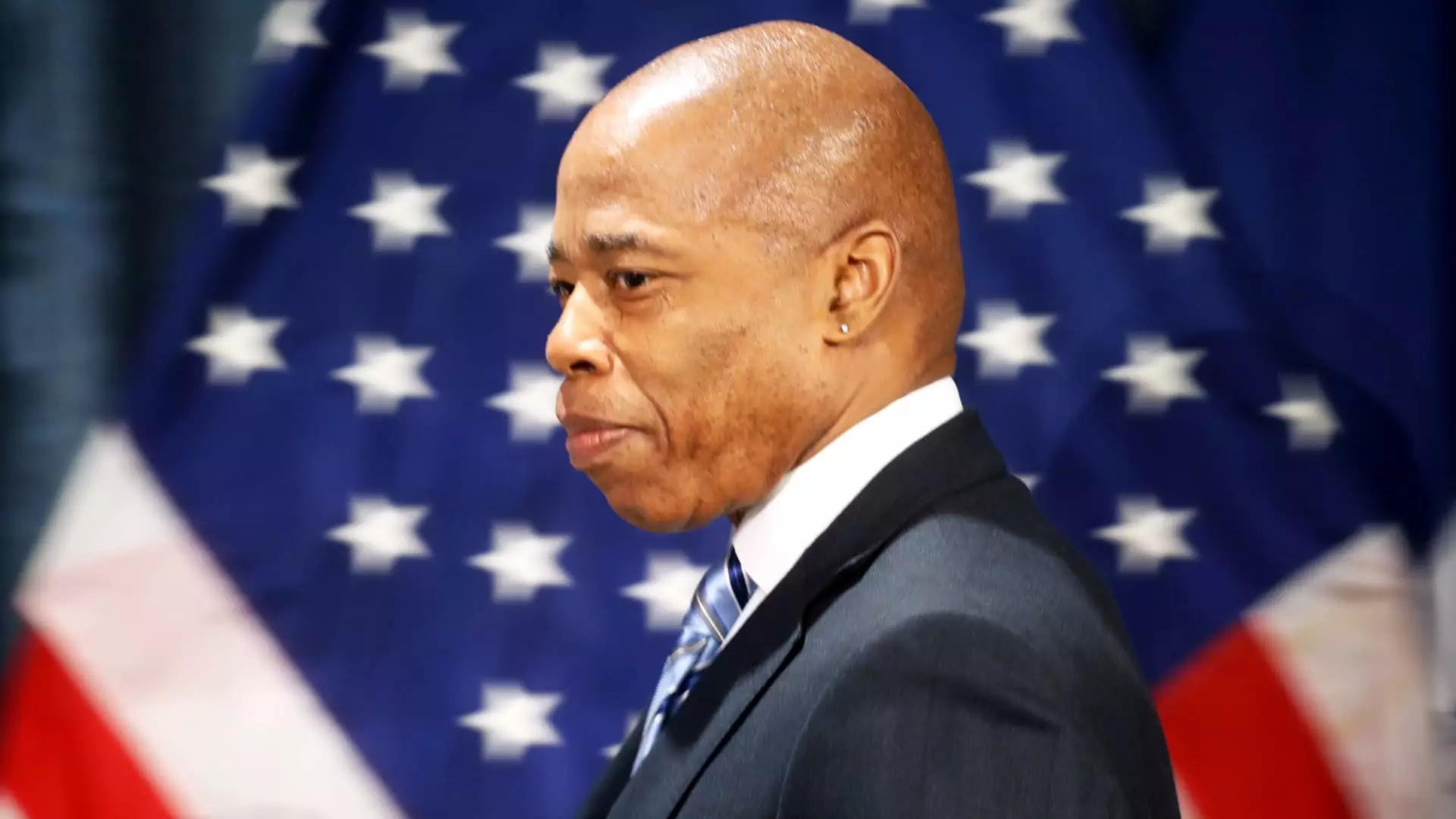New York City Mayor Eric Adams has taken a bold step in addressing the mental health crisis among young adults and children in the city. On Wednesday, Adams announced that his administration has filed a lawsuit against the parent companies of popular social media platforms TikTok, Instagram, Facebook, Snapchat, and YouTube. The lawsuit, filed in the Los Angeles county branch of the California Superior Court, alleges that these companies have knowingly designed and marketed their platforms to attract and addict youth, with minimal parental oversight. It further claims that their services have caused significant damage to the mental health of the city’s young population.
This lawsuit marks a significant development in the ongoing debate surrounding the influence of social media on mental well-being. By targeting some of the biggest players in the industry, Mayor Adams is sending a clear message that the harmful effects of social media cannot be ignored. The plaintiffs, which include the city’s school district and health organizations, argue that the tech companies violated several city laws related to public nuisance and gross negligence through their design and marketing strategies. They assert that these addictive platforms have had dire consequences for New York’s school districts and various health and social services.
Mayor Adams stated, “Over the past decade, we have seen just how addictive and overwhelming the online world can be, exposing our children to a non-stop stream of harmful content and fueling our national youth mental health crisis.” He sees this lawsuit as a crucial step towards holding these companies accountable for their role in exacerbating this crisis. The mayor and the plaintiffs are committed to addressing the public health hazards associated with social media and ensuring a healthier online experience for the city’s youth.
Unsurprisingly, the accused social media giants are pushing back against these allegations. Representatives from TikTok, Google (parent company of YouTube), Meta (formerly Facebook), and Snap all expressed their commitment to providing safe and age-appropriate experiences for young users. They argue that their platforms have comprehensive safeguards and features in place to protect teenagers and that they actively collaborate with experts to stay ahead of emerging challenges. Nevertheless, they acknowledge that there is always room for improvement and promise to continue their efforts in making their platforms safer.
New York City’s lawsuit mirrors a similar legal action taken against these companies in California in 2022. The growing number of lawsuits and regulatory actions is evidence of the mounting concern over the impact of social media on mental health, particularly among young people. Lawmakers are pushing for stricter regulations through bills like the Kids Online Safety Act, highlighting the need for accountability and oversight in the industry. Company CEOs, including Meta’s Mark Zuckerberg, TikTok’s Shou Zi Chew, and Snap’s Evan Spiegel, have already faced tough questioning from lawmakers, further fueling the urgency for change.
Mayor Adams’ lawsuit and the broader movement for social media regulation have the potential to shape the lives of young people, not only in New York City but across the country. It is essential to strike a balance between the benefits of social media and the potential harms it can cause. The focus should be on creating a safer and healthier online environment for all users, especially vulnerable children and teenagers. While the outcome of this lawsuit remains uncertain, it is undeniable that the conversation surrounding social media’s impact on mental health is gaining momentum and bringing important issues to the forefront.


Leave a Reply